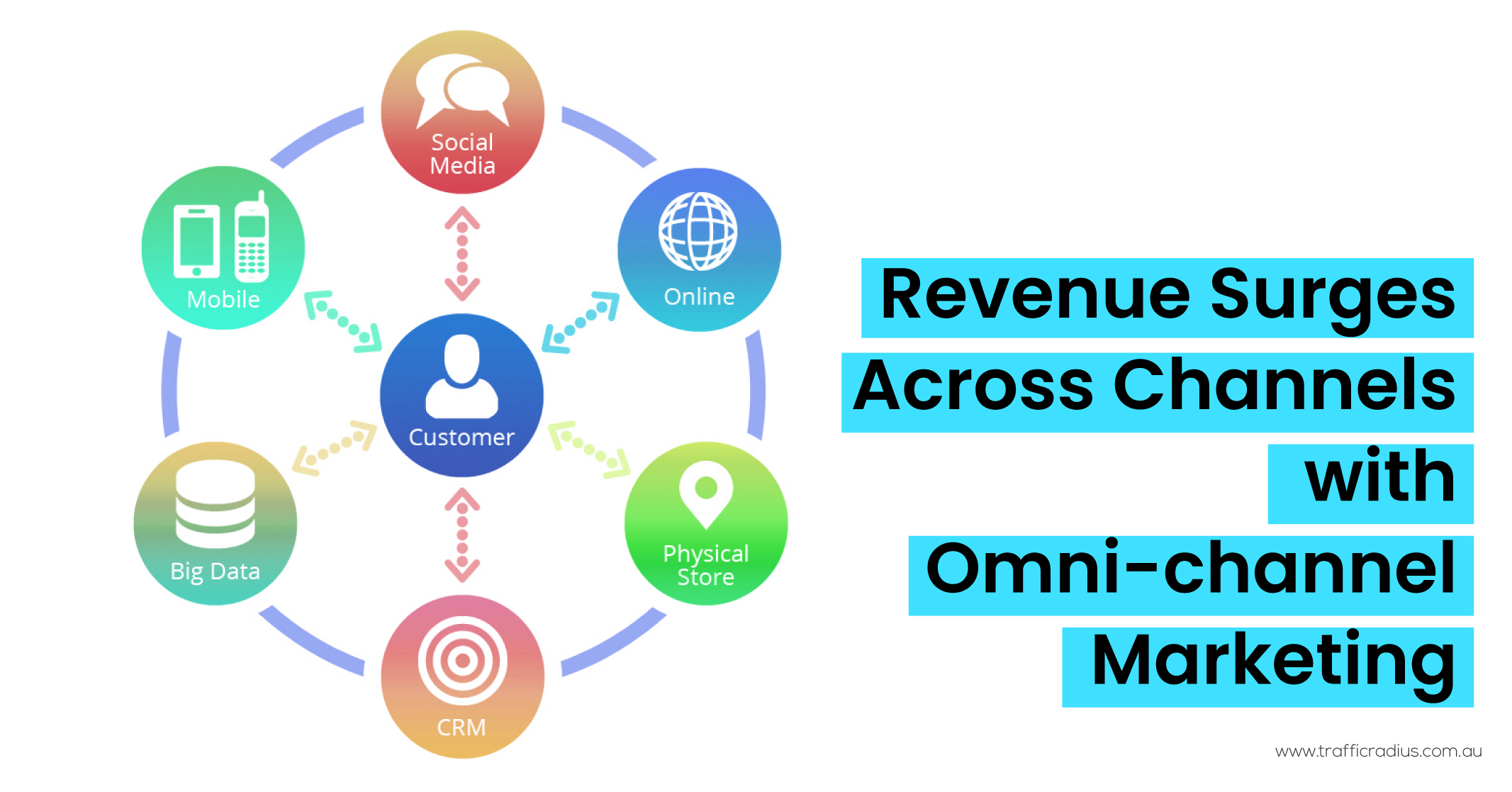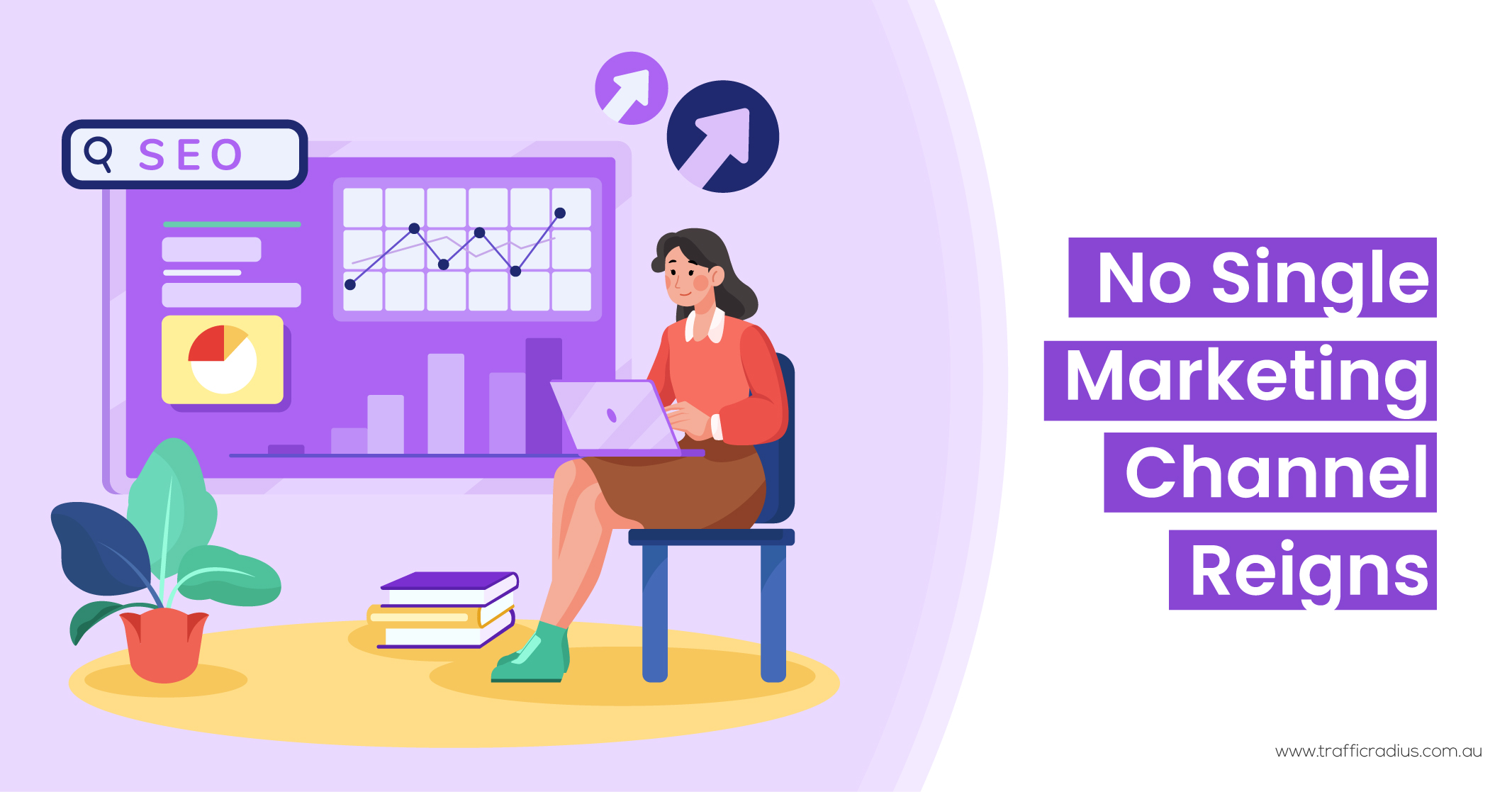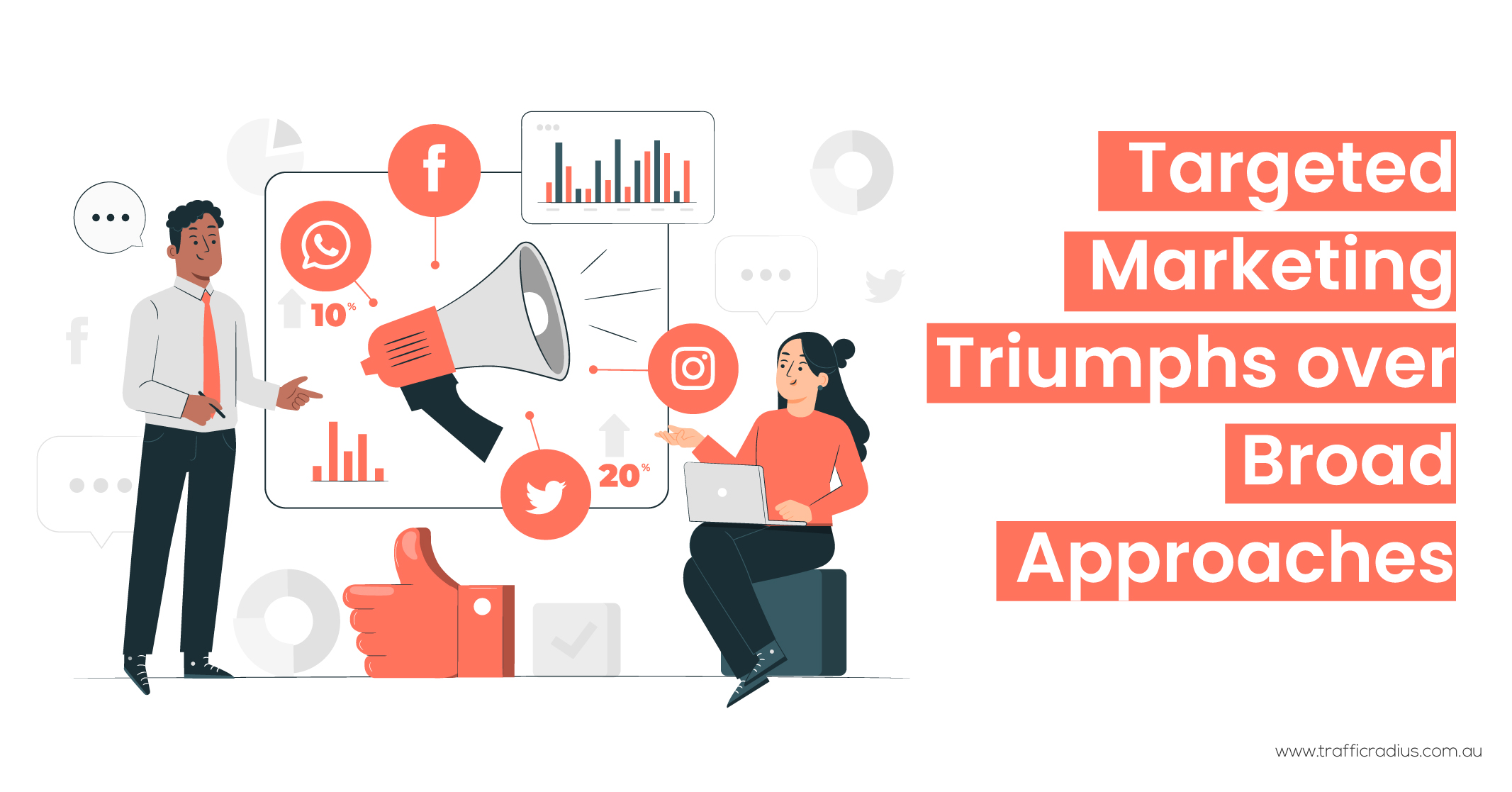I hope you enjoy reading this blog post.
If you want to get more traffic, Contact Us

Click Here - Free 30-Minute Strategy Session
Be quick! FREE spots are almost gone for this Month. Free Quote

For over two decades, the experienced marketer at Traffic Radius has developed a profound understanding of the industry.
However, the dynamic nature of marketing has necessitated a willingness to adapt and embrace new approaches. Although entrenched in established methods that have proven successful over the years, the marketer has recognised the value of staying open-minded.

Click Here – Free 30-Minute Strategy Session
Be quick! FREE spots are almost gone for this Month
Key statistics and data have played a pivotal role in altering the marketer’s perspective, leading to a transformation in their marketing strategies and marketing tactics. By incorporating invaluable insights into its decision-making process, Traffic Radius has gained access to an array of marketing strategy tips that have revolutionised its approach to reaching target audiences and achieving business goals.

Our marketer recognised the significance of crafting comprehensive marketing plans that embrace the concept of omnichannel marketing. By diversifying the range of channels utilised, businesses can maximise their outreach and engagement with target audiences. For instance, incorporating a blend of digital marketing strategies, such as social media campaigns, search engine optimisation (SEO) tactics, email marketing, content marketing and paid advertisements, can yield significant benefits.
To illustrate the practical implementation of these strategies, here are a few examples of effective marketing strategies types:
By adopting these digital marketing strategies, incorporating an omnichannel approach, and customising them to suit the unique needs of each business, marketers can unlock the full potential of their marketing campaigns and drive tangible results.

A recent examination of the top 10 most searched queries on Google revealed an intriguing trend: approximately 70% of these popular keywords are associated with well-known brands.
This realisation prompted an interesting exploration by our marketer, who decided to analyse the search traffic patterns of companies they collaborated with based on their annual revenue.
For companies generating over 1 billion dollars annually, a substantial portion of their search traffic stemmed from branded queries. Similarly, as the revenue range decreased, the percentage of search traffic originating from brand-related terms diminished. This observation highlights the significance of branding efforts, alongside other vital marketing channels such as SEO, paid ads and social media, to achieve long-term success.
To effectively establish a strong brand presence, two essential factors emerge longevity in the business and the development of exceptional products or services that resonate with consumers. However, a third crucial aspect, known as the rule of 7, reinforces the importance of repeated brand exposure. Research indicates that when individuals engage with a brand at least seven times, they are more likely to become dedicated advocates and loyal followers.
Consequently, to maximise brand visibility and recognition, adopting an omnichannel approach becomes imperative. By utilising multiple marketing channels, businesses can increase the likelihood of consistent brand exposure, reinforcing the rule of 7 and fostering brand loyalty. It is essential to allocate a portion of marketing efforts specifically towards branding, recognising that not all strategies require an immediate or direct return on investment.
Effective marketing plans and strategies should encompass a comprehensive approach, integrating various digital marketing strategies. This includes tactics such as search engine optimisation (SEO), paid advertising, social media campaigns, content marketing, and more. However, alongside these tactics, placing emphasis on branding efforts and leveraging the rule of 7 can significantly contribute to long-term success and create a loyal customer base.

During a past visit to Austin, our marketer engaged in a thought-provoking discussion with a friend over dinner. The conversation revolved around the questionable tactics employed by marketers who claim to possess the secret to instant wealth, requiring individuals to purchase their courses or e-books. However, this conversation sparked an interesting marketing lesson—taking the aggressive tactics utilised by these marketers and applying them to legitimate businesses.
One particularly effective strategy adopted by these marketers is the concept of “launches.” These marketers boast about generating over $1 million within a mere 24 hours through email marketing campaigns. Essentially, they heavily promote a product leading up to its launch, as well as during the initial week of its availability.
Intrigued by this concept, our marketers decided to implement it within their marketing efforts, specifically targeting their email list. The outcome was impressive, with sales reaching a noteworthy $756,954 within the first week (before refunds). Although it fell short of the million-dollar mark, the results were commendable.
The success was achieved through a series of well-crafted and strategically timed emails sent to their list, consisting of 255,237 individuals at the time. It is worth noting that the marketer’s current email list has grown substantially to 1.4 million people.
It is important to highlight that launches are not limited to individual marketers. Esteemed companies such as Apple and numerous other industry giants have also embraced this type of marketing strategy, recognising its effectiveness in creating excitement and driving sales.
In conclusion, this insightful lesson taught our marketers the potential power of launches, showcasing their ability to generate significant sales and create a buzz around a product or service. While it is crucial to ensure ethical practices and align with legitimate businesses, leveraging the best marketing strategies, such as launches, can lead to remarkable results.
During speaking engagements at international conferences, our marketer has noticed a common misconception among attendees—the belief that the key to financial success lies solely in entering the U.S. market.
However, based on their extensive experience working with large corporations, our marketer has come to realise that this notion couldn’t be further from the truth. While the U.S. market is undeniably substantial and often the primary revenue driver for many companies, it represents only a fraction of the total revenue for most major corporations generating over a billion dollars annually.
Despite the challenging economic climate, the year-to-date revenue growth in international markets for the agency has soared by an impressive 61%. This remarkable growth demonstrates the immense potential that lies beyond domestic boundaries.
Prominent global companies such as Apple, Microsoft, Google, Salesforce, Adobe, BMW, Toyota, P&G and Coca-Cola serve as prime marketing strategies examples of the benefits derived from a global focus. By expanding marketing efforts beyond domestic borders, businesses can tap into diverse markets and capitalise on international opportunities.
For those seeking guidance on globalisation efforts, the marketer suggests referring to a helpful article provided or reaching out to their ad agency for professional assistance. By adopting a comprehensive approach that encompasses international markets, businesses can unlock substantial growth potential and establish themselves as global players.
Learn More: Effective Marketing Techniques that Deliver Results
Our marketer, through their experience and interactions during international conferences, has noticed a prevalent misconception among attendees regarding the key to financial success—specifically, the belief that focusing solely on the U.S. market is paramount.
However, our marketer has learned from working with large corporations that this notion is far from accurate. While the U.S. market is indeed substantial and often the primary revenue source for many companies, it contributes only a fraction to the total revenue of major corporations generating over a billion dollars annually.
Taking into account their ad agency’s expansion efforts, which currently encompass 16 countries and are projected to reach 35 countries by next year, our marketer underscores the importance of adopting a global perspective. Despite challenging economic conditions, the agency has achieved an impressive 61% year-to-date revenue growth in international markets. This significant progress serves as a testament to the substantial opportunities that lie beyond domestic boundaries.
Prominent global companies like Apple, Microsoft, Google, Salesforce, Adobe, BMW, Toyota, P&G and Coca-Cola exemplify the benefits derived from a global focus. By extending marketing efforts beyond domestic markets, businesses can tap into diverse regions and leverage international opportunities.
For those seeking guidance on globalisation strategies, our marketer suggests referring to a provided article or consulting their ad agency for professional assistance. Implementing a comprehensive approach that encompasses international markets empowers businesses to unlock substantial growth potential and establish themselves as global leaders.

Previously, our marketer held a strong belief in the supremacy of SEO as the ultimate marketing channel. This conviction was primarily rooted in the long-term cost-effectiveness of SEO compared to paid advertising. Moreover, unlike paid ads, which cease to generate traffic once stopped, SEO offers a sustainable flow of organic traffic. Additionally, our marketers perceived social media as a challenging platform for driving clicks to websites, further bolstering their preference for SEO.
However, over time, our marketer’s perspective has evolved. While they still hold a deep appreciation for SEO, they now recognise the value of diversifying marketing channels and no longer limit themselves to SEO alone. The reason for this shift lies in the increasing number of businesses entering the market. As depicted in the chart above, although many businesses fail, the overall business landscape is expanding, intensifying competition in the marketing arena.
In marketing, this phenomenon is referred to as the “law of shitty click-throughs.” Historical data reveals a significant decline in click-through rates (CTRs) across various channels. For instance, in 1994, the CTR for HotWired banner ads stood at an impressive 78%. By 2011, Facebook’s CTR had plummeted to a mere 0.05%. Even email open rates have witnessed a downward trend over time. This pattern holds for remarketing ads and most marketing channels.
However, this does not indicate the death of marketing but rather underscores its inherent competitiveness. To succeed in this landscape, it is crucial to leverage all available marketing channels and extract maximum value from each. Whether a channel has the potential to scale to millions or only thousands of monthly revenue, profitability remains the key consideration. Therefore, our marketer advocates for the utilisation of all channels that prove profitable, regardless of their scale.

In social settings, our marketer has often encountered situations where their company is unfamiliar to others, even in terms of the industry they operate in. Surprisingly, this phenomenon persists among companies of considerable size and stature. For instance, brands like Corning, Centene, AmerisourceBergen, and Archer Daniels Midland, which are Fortune 100 companies, remain largely unknown to the general public.
This highlights the fact that building a widely-recognised brand takes time. According to Under Armour’s founder, Kevin Plank, it typically requires a minimum of 10 years. Irrespective of the industry, this is a considerable duration. Therefore, targeting a broad audience indiscriminately can impede the brand-building process.
To illustrate, our marketer recounts a recent experience involving their podcast co-host, who asked them to share a video about boats on Instagram. Despite the potential for high viewership on TikTok, our marketer chose not to share it. The reason is that although discussing boats and yachts may be captivating, it does not contribute to customer acquisition. Hence, it is deemed a waste of time.
However, our marketer acknowledges the co-host’s attempt to tie marketing into the podcast episode, thereby demonstrating a purpose behind mentioning yachts. Drawing from personal experience, our marketer shares their substantial following on Facebook and YouTube, each exceeding one million. Yet, they emphasise that the sheer number of followers is not the primary metric of success. Rather, it is crucial to focus on the right audience—the ideal buyers.
Attempting to gain popularity or pursuing broad brand recognition does not significantly impact marketing success. Instead, directing efforts towards the ideal customer base avoids diluting the marketing message and wasting resources. A pertinent example is toothpaste companies, which cater to a wide consumer base. Despite the universal usage of toothpaste, these companies do not employ a blanket approach but rather target specific segments based on the products they offer within that category.
By focusing on their ideal customers, companies can enhance their return on investment (ROI) and achieve more effective marketing outcomes.
Learn More: Content Marketing ROI
Having an open mind is crucial in the ever-evolving landscape of marketing. It is essential to recognise that just because a certain approach is commonly adopted, it does not necessarily mean it is the right path to follow.
Reflecting on their past, our marketer acknowledges that they used to be more rigid in their thinking, which hindered personal and business growth. However, they have since adopted a mindset of continuous testing, experimentation, and a willingness to explore unconventional strategies.
By breaking away from conventional norms and exploring alternative avenues, our marketer has discovered new possibilities that have propelled their growth. They recognise that embracing change and thinking outside the box can lead to innovative and effective marketing approaches.
In summary, having an open mind and being receptive to trying new and unconventional methods are key to adapting to the ever-changing marketing landscape and fostering personal and business development.

LEAVE A REPLY